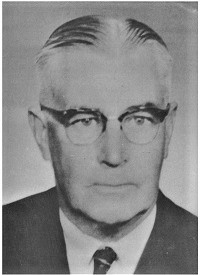David G Stead

David G. Stead was born at North Sydney, 6 March 1877 and educated at public schools and Sydney Technical College.
David Stead served in a number of government posts. He was involved with the fisheries industry in Australia and in British Malaya over many years and was also the Australian representative on a number of International Committees on Fisheries, Marine Biology and Oceanography.
David Stead was a dedicated naturalist and member of many scientific and natural history societies of which he was often an office bearer. These included the Linnean Society, Australian Forest League, Gould League, Geographical Society of NSW, the Royal Zoological Society of NSW and the Wildlife Preservation Society. This latter society was his creation and behind which he was the driving force.
As an enthusiastic geographer, oceanographer and aquarist he made great collections of Australian and Malayan fishes which are now preserved in the Australian Museum.
David Stead was a prolific writer. He wrote extensively for the government, natural history societies, newspapers, and produced fourteen books. In 1933 he was General Editor of a series of nature books brought out by Shakespeare Head Press.
At different times he was editor of ‘The Australian Naturalist’, and ‘The Australian Geographer’. He was a great believer in educating people and saw these publications as a means of advancing appreciation of natural things and the need for conservation.
David Stead was a popular lecturer, often travelling great distances willingly to give a talk with one of the best collection of slides on natural topics. He was never in doubt of his perspective. The cause of conservation was uppermost in his mind and he was one of the people whose work in the area of conservation influenced later generations of the rightness of the conservation cause.
After his death in 1957 tributes came from people in all walks of life. One of these sums up his life’s work:
“No one fought harder than he for the preservation of Australian wildlife; from his work has arisen an awakening that has meant a fuller appreciation of the value of our native plants and animals and our scenic gems; from his efforts, often initiated alone and against considerable opposition, has arisen the wider groups of people that are pressing for recognition for the cultural, scientific, and economic value of the natural environments of our land.”